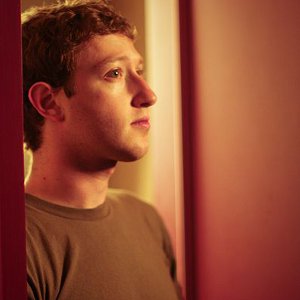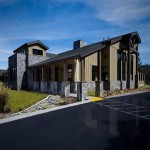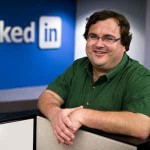Mark Zuckerberg wants to expand Facebook’s reach by opening the site up to children under thirteen. First, however, he’ll have to take on COPPA, the Children’s Online Privacy Protection Act.
COPPA, enacted in 1998 (long before Zuckerberg even entered Harvard), requires websites to get parental consent from all children under age 13 before they can sign up. At present, Facebook does not have any age verification process in place, so children under 13 can register simply by claiming that they are older. About 7.5 million children under thirteen are believed to have accounts on the site. Of these, about 5 million are believed to be 10 or younger.
Allowing children onto the site would be a “final frontier” of sorts for Facebook. When the site was first launched in 2004, it was intended exclusively for Harvard students. It soon opened up to students in other Boston-area and Ivy League schools, to Stanford students, and eventually to other colleges. It then opened up to high school students and to employees of various high tech companies. In September 2006, it finally opened itself up to all people over the age of 13, in compliance with COPPA standards.
There are now an estimated 600 million people worldwide with Facebook accounts—almost twice the population of the United States. If Facebook was a country, only China and India would have more people, and Facebook is currently blocked in China. If the site is to grow, especially in the West, officially opening it up to children would be the biggest market.
Of course, that is not how Zuckerberg sees it, or at least not how he presents it. While attending the NewSchools Venture Fund’s Summit in Burlingame last week, the Facebook CEO told venture capitalist John Doerr of Kleiner Perkins that opening up Facebook and other social networking sites to children would be educationally advantageous to them and the economy. “In the future,” Zuckerburg noted, “software and technology will enable people to learn a lot from their fellow students.” He also reiterated his belief that, “Education is clearly the biggest thing that will drive how the economy improves over the long term.”
That’s no bland assertion coming from Zuckerberg. Last year he pledged to donate $100 million to the Newark, New Jersey school system. In other words, as far as education is concerned, he is prepared to put his money where his mouth is.
Zuckerberg’s intimation that he could foresee opening up the website to children immediately led to questions about how he would get around COPPA restrictions. “That will be a fight we take on at some point,” he responded. “My philosophy is that for education you need to start at a really, really young age.” When asked about safety concerns, he said, “We’d take a lot of precautions to make sure that they [younger users] are safe.”
Such an assurance will not be enough for COPPA supporters, many of whom are expressing concerns about Facebook’s ability to protect the privacy of its older users. A recent study by Columbia University found that existing approaches to internet privacy are “fundamentally flawed and cannot be fixed.”
That study tracked the Facebook use of 65 students between the ages of 18 and 25, ostensibly among the website’s more computer savvy group of users. While 95 percent of them entered the study confident that they had taken the necessary security precautions to ensure that personal information was protected, all of them reported that at least some information had been shared, and 93.8 percent said that they had hoped to keep at least some of that information private.
This comes in addition to a security glitch uncovered by Symantec earlier this month. In its report, Symantec stated that the website has been leaking codes unknowingly, thereby allowing access to the profiles of millions of users to a number of third parties, including advertisers. Both Symantec and Facebook say that there is no evidence that third parties were aware of the glitch or exploited it, and add that the problem no longer exists because Facebook has switched its authentication scheme to OAUTH2.0. Nevertheless, Facebook apps will continue to support older authentication schemes until the migration to OAUTH2.0 is complete.
This has attracted the attention of numerous politicians, led by Senator Jay Rockefeller (D) of West Virginia. At hearings about internet privacy, the Senator declared that, “It’s my general feeling that people who are 20, 21, 22 years old really don’t have any social values.” He added that this applied to Facebook, and especially Mark Zuckerberg, saying, “I think he was focused on how the business model would work. He wanted to make it bigger and faster and better than anybody else ever had.” The intimation was that at 19, Zuckerberg was too young and too immature to fully understand the consequences of his decisions, and that the same holds true today.
This idea has been picked up by many prominent bloggers, among them Jason Calacanis, who writes, “The biggest mistake most new players make at poker is overplaying their hand. They spend so much time thinking of the ways they can win that they forget all the ways they can lose. … Over the past month, Mark Zuckerberg, the hottest new card player in town, has overplayed his hand.” He goes on to call Zuckerberg, “an amoral, Asperger’s-like entrepreneur.”
Yet while the debate might whirl around whether Zuckerberg is a visionary or amoral, it tends to ignore the enormous power wielded by Facebook COO Sheryl Sandberg, whom The Atlantic called, “Facebook’s adult.” Fifteen years Zuckerberg’s senior, Brad Stone of Bloomberg Businessweek writes of her that, “She believes that other booming Internet companies that doubled and tripled their staffs during similar periods of unchecked growth … eventually came to regret the innovation-killing bureaucracy that resulted.”
Sandberg is married plus two, both under the age of 13. As someone intimately involved with Facebook, it remains to be seen if she feels the same need to take on COPPA as her boss.
Read More at CNN Fortune.
Read More at CBS News.
Read More at the LA Times.
Read More at NBC Bay Area.
Read More at Consumer Reports.

 Top 10 Coolest San Jose Summer Camps
Top 10 Coolest San Jose Summer Camps  Linkedin Stock Surge: Scam?
Linkedin Stock Surge: Scam? 